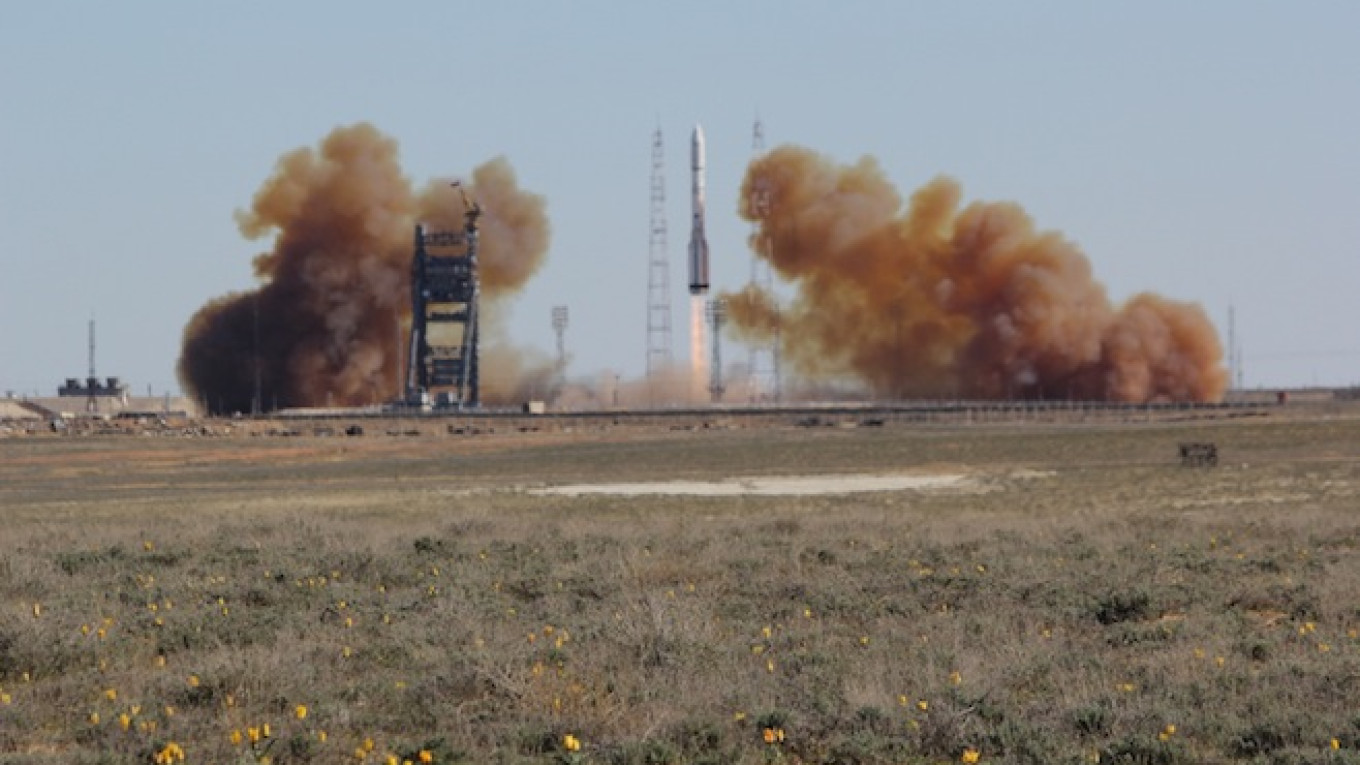Backlash from the failed rocket launch at Russia's Vostochny Cosmodrome has seen the dismissal of a top-ranking official.
Leonid Shalimov, general director of the company providing the rocket's control systems, became the first official figure to be dismissed in connection with the incident.
His departure was linked to the first failed attempt to launch the Soyuz 2.1, the Kommersant newspaper reported, citing unidentified sources.
The Soyuz rocket was scheduled to launch on April 27, but was delayed due to problems with the starting procedure. A successful launch took place on April 28.
Top-ranking officials throughout the Russian space agency Roscosmos, are also to be re-certified following the failure, Kommersant reported. A new level of bureaucratic staff are also to be introduced within the agency.
Dmitry Rogozin, deputy prime minister and head of the defense industry, was against Shalimov's firing, according to Kommersant.
Russian President Vladimir Putin, who had flown to Russia's Far East to watch the launch, publicly reprimanded Rogozin and the general director of Roscosmos Igor Komarov, alongside Leonid Shalimov the day after the failed launch.
Putin ordered the creation of a special commission of 20 industry experts to investigate the reasons for the failed launch. Their report ultimately blamed faulty wiring within the rocket's launch systems. Its failure led a failsafe switch to be tripped in the final moments before the launch.
No one from the company, including the quality control inspectors, noticed the error, Kommersant reported.
Shalimov's colleagues signed an open letter pleading against his dismissal, arguing that the new launch system had to be installed in a short period of time.
Deputy director Mikhail Trapeznikov is now set to fill Shalimov's former post as head of the Scientific and Production Association of Automatics.
A Message from The Moscow Times:
Dear readers,
We are facing unprecedented challenges. Russia's Prosecutor General's Office has designated The Moscow Times as an "undesirable" organization, criminalizing our work and putting our staff at risk of prosecution. This follows our earlier unjust labeling as a "foreign agent."
These actions are direct attempts to silence independent journalism in Russia. The authorities claim our work "discredits the decisions of the Russian leadership." We see things differently: we strive to provide accurate, unbiased reporting on Russia.
We, the journalists of The Moscow Times, refuse to be silenced. But to continue our work, we need your help.
Your support, no matter how small, makes a world of difference. If you can, please support us monthly starting from just $2. It's quick to set up, and every contribution makes a significant impact.
By supporting The Moscow Times, you're defending open, independent journalism in the face of repression. Thank you for standing with us.
Remind me later.


